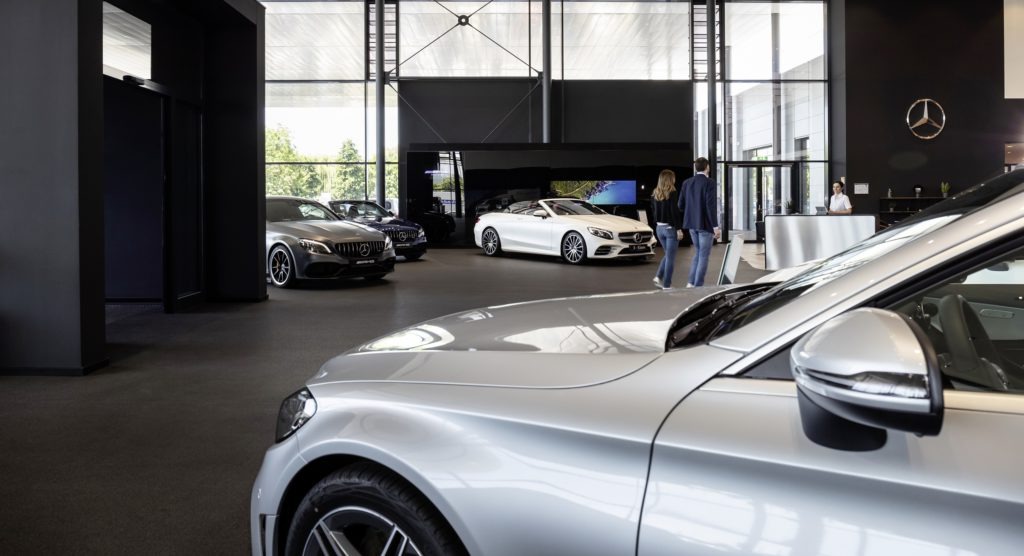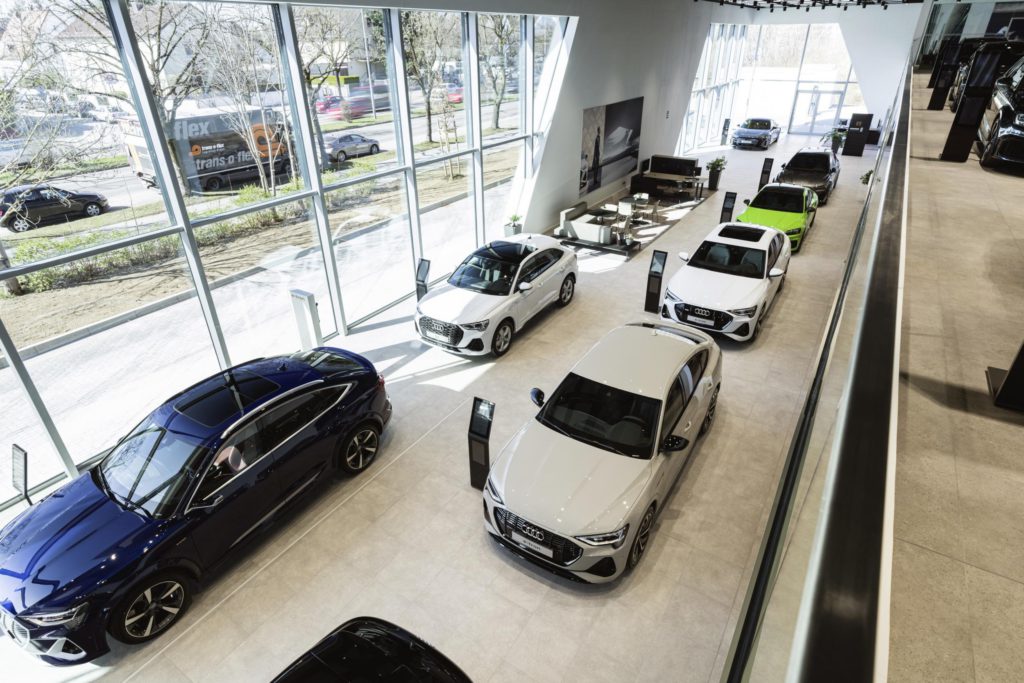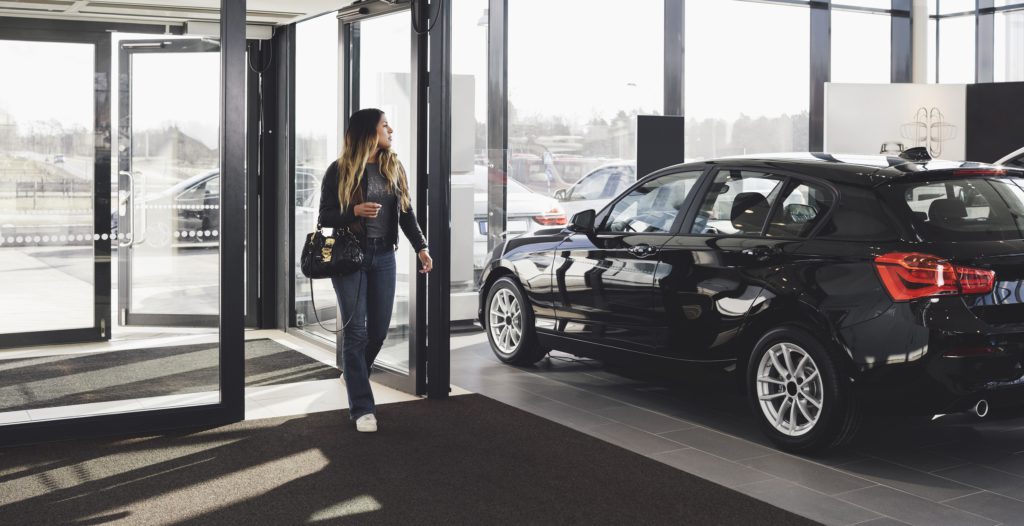Will Daimler sell showrooms and sites for €1 billion?
09 June 2021

Daimler may sell off showrooms and service sites in Europe to cut fixed costs, according to German newspaper Handelsblatt. Citing industry sources, the publication revealed the deal could net the automotive group approximately €1 billion.
Carmakers are coming to grips with a very different market than the one they entered COVID-19 with. Production and sales took enormous hits as lockdowns forced the closure of factories and showrooms. Now, these companies must assess which assets can be liquidated in an attempt to raise revenue. With online sales platforms proving useful over the course of the pandemic, some carmakers are clearly tempted to lean into the digital realm. However, they must not forsake real space for virtual ones.
€1 billion deal
According to Handelsblatt, Daimler has more than 25 retail sites and workshops across Spain, Belgium and the UK. These locations may now be sold to independent dealers or investors, potentially earning the Stuttgart-based group up to €40 million per branch.
A Daimler spokesperson told Autovista Group that with the new Mercedes-Benz strategy, the company is looking to lower its cost base and improve its industrial footprint. This means continual revaluation of markets, as well as the current and future commercial strategies.
The company is in frequent talks with its partners and stakeholders, and positive momentum has been identified in the UK, Spain and Belgium, the spokesperson confirmed. There also looks to be a ′chance to provide our own retail locations in these markets with the best possible future prospects.’ Therefore, these markets are able to explore the sale of their own retail locations.
However, when in talks with interested buyers, a high priority is reportedly placed on enduring economic success and the continuation of Mercedes-Benz operations. ′In this way, we want to offer long-term prospects for the employees of the locations and at the same time ensure the best possible support for our customers on-site,’ the spokesperson said.
Daimler concluded that while there is a continuing evaluation of current and potential sales in the future, besides the aforementioned markets, there are presently no similar decisions or evaluations taking place elsewhere in Europe.
Virtual vs real
Some carmakers are taking the pandemic as a retail turning point, using it to pivot into the digital realm. But many have realised that these online platforms might struggle in a vacuum and require the physical spaces to actually function.
As of 2030, Volvo Cars’ latest line-up of battery-electric vehicles (BEVs) will only be available to purchase online. However, Volvo has confirmed the ongoing importance of physical spaces, calling them crucial to the customer experience. They will remain responsible for services such as selling, preparing, delivering and servicing cars. ′Online and offline need to be fully and seamlessly integrated,’ said Lex Kerssemakers, head of global commercial operations at the time. ′Wherever the customer is in their journey – online, in a showroom, in a Volvo Studio, or driving the car – the customer experience needs to be top-notch.’
The used-car market is also seeing increased online influence. Launching in Germany later this year, Driverama will be Europe’s first-ever online, borderless, used-car retailer. The company looks to enter the Netherlands in early 2022, then Belgium and Luxembourg. By 2025, it plans to expand the concept to 11 countries across Europe. However, it will also utilise the support of physical spaces, starting with up to four physical locations and increasing to 24 facilities in 2022.
Volkswagen Passenger Cars is making a significant investment in sales and distribution for its home market; Germany. The carmaker projects funds for this project will reach the triple-digit million-euro mark by the end of 2023.
′Audi Progressive Retail’ (APR) is another recently announced showroom concept from within the Volkswagen Group. Falling into line with new green consumer expectations, the carbon-neutral store is the first in the world by the OEM to receive certification from the Deutsche Gesellschaft fÜr Nachhaltiges Bauen (German Association for Sustainable Building). It too emphasises digital capabilities, with interactive modules and large-format displays providing an enhanced customer experience.
These investments into physical spaces are a good bet, given the potential disruption online platforms may experience in the future. Aside from website outages and hacking, the way businesses operate within the digital space is due for a knock. Google plans to halt the use of third-party cookies on its platforms next year. Online activity is used by businesses to identify potential customers, but as the internet giant attempts to increase privacy standards, businesses will find targeted advertising more difficult. Once again, the showroom shows its worth.



